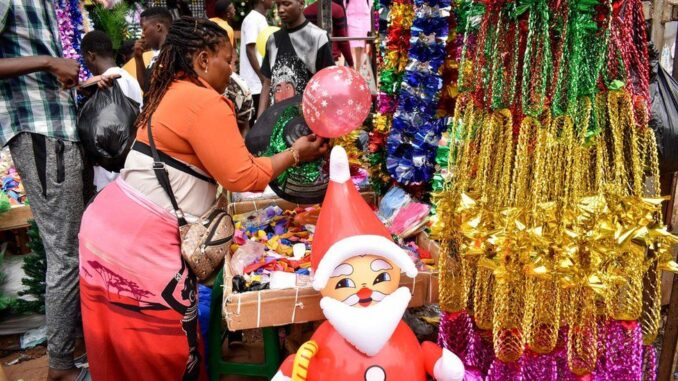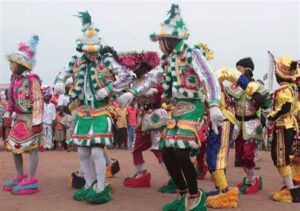
Festive Economic Activities
Retail Shopping
One of the most significant economic impacts of Christmas in Africa is seen in the retail sector. Markets and shopping malls witness a surge in sales as people purchase gifts, decorations, new clothes, and food items for the festivities. This increased consumer spending boosts local businesses and retailers, creating a ripple effect throughout the economy. Street vendors also benefit as they sell everything from festive decorations to special holiday treats.
Travel and Tourism
Travel is another major aspect of Christmas celebrations in Africa. Many people travel long distances to be with their families, leading to increased demand for transportation services, including buses, trains, and flights. Additionally, some families opt for holiday destinations, both within their countries and abroad, boosting the hospitality and tourism sectors. Hotels, restaurants, and tourist attractions see a significant increase in patronage during this period.
Carnivals and Community Events
Carnivals, street parades, and community events are a hallmark of Christmas celebrations in many African countries. These events not only bring people together but also provide numerous economic opportunities. Local artisans and craftsmen can sell their products, food vendors can cater to the crowds, and event organizers hire various services to ensure successful festivities. Such events foster a sense of community while stimulating the local economy.
countries. These events not only bring people together but also provide numerous economic opportunities. Local artisans and craftsmen can sell their products, food vendors can cater to the crowds, and event organizers hire various services to ensure successful festivities. Such events foster a sense of community while stimulating the local economy.
Cultural Expression and Economic Activity
For many, Christmas is a time of cultural expression. Each region and community in Africa has its unique way of celebrating, with traditions passed down through generations. These cultural activities often involve the creation and sale of traditional crafts, performances, and foods, contributing to the economy. Cultural festivals and performances attract both locals and tourists, providing income for performers and artisans alike.
The Role of Small Businesses
 Small businesses play a crucial role during the Christmas season. From tailor shops producing custom-made outfits to small-scale food producers preparing special holiday delicacies, these enterprises are vital to the economy. The increased demand during the festive season allows these businesses to thrive and even expand, contributing to job creation and economic growth.
Small businesses play a crucial role during the Christmas season. From tailor shops producing custom-made outfits to small-scale food producers preparing special holiday delicacies, these enterprises are vital to the economy. The increased demand during the festive season allows these businesses to thrive and even expand, contributing to job creation and economic growth.
Christmas and Charitable Activities
Christmas is also a time for giving, and many charitable organizations see a boost in donations and support during this period. Fundraising events, charity drives, and community outreach programs are common, providing assistance to the less fortunate. This spirit of giving not only helps those in need but also supports the organizations and individuals involved in charitable activities.
The Overall Economic Impact
The overall economic impact of Christmas in Africa is significant. Increased spending, heightened economic activities, and the spirit of giving all contribute to the vitality of local economies. The festive season provides a unique opportunity for economic growth, community engagement, and cultural celebration, making Christmas a cherished time for both its social and economic contributions.
Christmas in Africa is a beautiful blend of tradition, community, and economic opportunity. It’s a time when the continent’s vibrant cultures come alive, and the collective spirit of celebration drives economic progress. From bustling markets to joyful street parades, the festive season is a testament to the enduring impact of Christmas on Africa’s economy and society.
